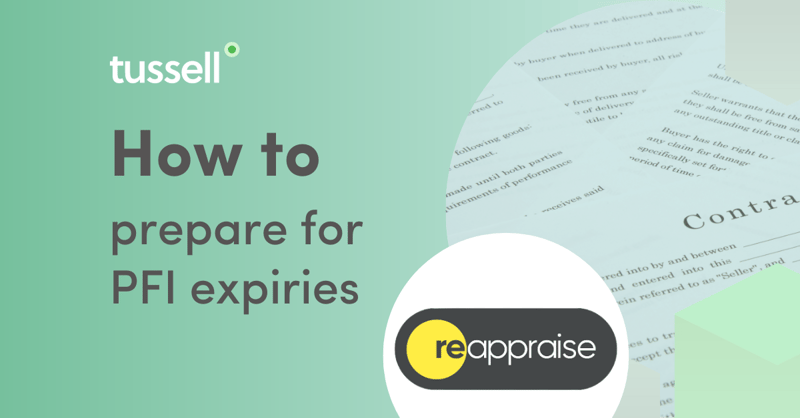General elections are the biggest event of the British political calendar.
Their results determine which party - or parties - hold power in Westminster, the priorities and policies of government departments, and the political context under which ALBs, devolved administrations, healthcare bodies and Local Government all operate.
It's reasonable to assume that such seismic events have a knock-on effect on public procurement - but how so?
In this blog, we investigate the relationship between general elections and public procurement - and what this means for your team ahead of the next election on July 4th 2024.
Skip ahead to read about:
- How do general elections affect public procurement?
- What does this all mean for your procurement team?
📅 When is the next UK general election?
On May 22nd, Prime Minister Rishi Sunak announced that the next UK general election will be held on Thursday July 4th.
Under the Dissolution and Calling of Parliament Act 2022, the Prime Minister had until December 17th to call an election before Parliament would automatically dissolve and an election would instead take place in January 2025.
In the run-up to the July election, parliament will be prorogued on Friday 24th May, and be officially dissolved on Thursday May 30th.
What happens between now and polling day?
🏛️ How do general elections impact public decision-making?
After a general election date is announced, and before the next government is formed, the public sector enters an unofficial 'pre-election period', or 'period of heightened sensitivity'.
Though no law explicitly prohibits it, convention and guidance dictates that public bodies and civil servants should apply extra caution around what decisions or announcements are made in the run-up to a general election.
The rationale is making such decisions could result in 'impartial' public bodies influencing or swaying voters.
What does this mean for different parts of the public sector?
Central Government
Newly released 2024 guidance for Central Government states that while Ministers and their departments must continue "essential business" necessary for the "smooth functioning of government and public services", extra discretion and caution must be exercised when "initiating any new action of a continuing or long term character".
It also explains that major decisions that an alternative future government may want to exercise "a different view from the present government should be postponed until after the election".
Essentially, major announcements or long-term decisions should be delayed until after the election, unless it pertains to a matter of national urgency or would be "wasteful of public money".
The Ministerial Code also states that while Ministers can campaign during an election, they cannot use government funds or resources "for party political purposes" (e.g. election campaigns, advertisements, etc.)
Government departments and their communications must - as always - remain as politically neutral and objective as possible.
Generally speaking, civil servants are expected to continue their day-to-day responsibilities, but - as under normal circumstances as well - should not engage in activity that brings their political impartiality into question. They should "provide consistent factual information on request to candidates of all parties", and "avoid becoming involved or appearing to become involved, in a partisan way, in election issues".
Local Government
For local authorities in England, the government's Code of Recommended Practice on Local Authority Publicity stipulates that during the pre-election period local authorities should not:
-
Publish material relating to controversial issues or report views that appear to align the authority with a particular politician or political party
-
Publish material promoting specific candidates or political figures
-
Publish material that seeks to influence voters
The Local Government Association also outlines how local authorities should not use public money to support a particular political party or candidate, arrange press releases or events or candidates, issue photographs of candidates, and should think carefully about launching new consultations and continuing to run local campaigns)
Local authorities can publish material that looks to provide factual information surrounding elections (e.g. where people can vote, how to register to vote, etc.)
Devolved Administrations & the NHS
The devolved administrations each publish their own pre-election guidance - though they're largely similar to the principles outlined by the UK Government.
The NHS has also started to publish guidance for pre-election periods. NHS England recently published guidance ahead of the May 2024 local elections, again discouraging the announcement and major policy decisions, launching new consultations, representing the NHS in political debates, etc.
*
Though slight nuances apply to each vertical of government, the gist remains the same: during pre-election periods contracting authorities of all kinds should hold off on making major announcements, support political candidates or parties, and reflect on how their communications and decisions could sway voters' opinions.
All of this has a knock-on effect on public procurement.
[1] [2] [3]
💷 How do general elections affect public procurement?
Restrictions on announcing major initiatives or policy changes mean large procurement exercises - particularly those pertaining to an incumbent party's prior election pledges - should probably be pushed back until after the election.
This could also include announcements for major contract extensions, re-tendering or the termination of any large incumbent contracts.
NHS England's pre-election guidance specifically discourages healthcare bodies from making "announcements on large and/or contentious procurement contracts".
But does this procurement caution actually unfold in reality?
Using Tussell's market intelligence platform, we dug into whether there is a correlation between general elections being announced and the volume of new tenders & PINs that are published in the weeks that follow.
The results are quite interesting: in the month following the announcement of all three of the last general elections, the volume of new tenders & PINs published by Central Government and NHS contracting authorities declined or stagnated, whereas the volume published by Local Government increased.
Click on any of these graphs to download them.
What's going on here? We have a few ideas:
-
Central Government procurement is the most impacted by the pre-election period because its work tends to be the most closely tied to the political agendas and priorities of the incumbent government - in other words, its procurement might be seen as the most 'controversial', and warrants holding-off until after the election.
-
Conversely, Central Government procurement is the most directly impacted by the government of the day - it makes sense for Central authorities to hold off on major new procurements until after the next government comes in, and may shift priorities.
-
The tenders and PINs that Central Government does publish during the pre-election period will typically relate to more 'run-of-the-mill' procurement activities (e.g. procuring office supplies)
-
NHS authorities see a stagnation or drop in new tenders and PINs as the guidance they follow is closely tied to the Cabinet Office's guidance for civil servants.
-
The drop may not be as heavy compared with Central Government, however, because most of its procurement activities would be considered important for the continued provision of essential health and social care services.
-
Local Government, on the other hand, is further removed - its procurement tends to be less contingent on the incumbent national government, and more to do with the delivery of day-to-day services.
-
The particularly large upticks in Local Government tenders and PINs for the 2015 and 2017 general elections might've been caused by their coincidence with the start of the new financial year for local authorities in the April / May period.
-
In theory, Local Government procurement will be more impacted by the pre-election period proceeding local elections - given the mismatch in when different authorities hold elections, however, this is difficult to see clearly at a national level.
What's the takeaway?
The data shows that the pre-election period's impact on procurement varies by government vertical - new tender and PIN levels see a clear drop in Central Government, a stagnation in the NHS, and appear largely unaffected in Local Government.
Contracting authorities most closely impacted by the result of a general election - i.e. Central Government authorities - appear to be the most willing to hold off on new procurement activities until after a general election has been held.
🚨 What does all this mean for procurement teams?
With the election now officially called for July 4th, procurement teams need to take action.
Procurement teams should familiarise themselves with what expectations are enforced by reading past and current guidance documents.
-
For Central Government teams, read the newly released 2024 general election guidance.
-
For a recent example of pre-election guidance for NHS teams, read NHS England's guidance for the 2024 Local Elections (although bear in mind this guidance may change slightly for the general election)
-
Local authorities should refer to the Recommended code of practice for local authority publicity, and the LGA's guidance on publicity
If you had planned to go to market for, or award, any new procurement contracts between now and the election, it's critical you consider their sensitivity and urgency in light of the new election date.
You and your team also need to reflect on any planned communications or press releases relating to ongoing - potentially politically sensitive - projects or persons, to judge whether they might unduly influence voters.
*
As the general election looms, don't be caught off-guard - understand the implications pre-election periods can have on procurement, and prepare ahead of time.
To stay up-to-date with all of our general election and procurement policy analysis, sign up to our biweekly newsletter - it's packed with insights, resources and more to help you bolster your procurement know-how, and make smarter procurement decisions.
[1] Alys Thomas, The pre-election period: Purdah on the dancefloor (The Constitution Society, 01/02/2024)
[2] Neil Johnston, Pre-election period of sensitivity (House of Commons Library, 10/03/2023)
[3] A short guide to publicity during the pre-election period (Local Government Association, 26/01/2024)



%20v1.png)
![New Nav Bar - New Tag [Gov]](https://www.tussell.com/hubfs/New%20Nav%20Bar%20-%20New%20Tag%20%5BGov%5D.png)
![[Gov] New Nav CTA - Product, Frameworks Finder (rounded) v1](https://www.tussell.com/hubfs/%5BGov%5D%20New%20Nav%20CTA%20-%20Product%2c%20Frameworks%20Finder%20(rounded)%20v1.png)


.png?width=80&height=80&name=james%20v2%20(1).png)

![New Nav Bar, Insights - Strategic Suppliers 2025 [Gov] v2](https://www.tussell.com/hs-fs/hubfs/New%20Nav%20Bar%2c%20Insights%20-%20Strategic%20Suppliers%202025%20%5BGov%5D%20v2.png?width=600&height=600&name=New%20Nav%20Bar%2c%20Insights%20-%20Strategic%20Suppliers%202025%20%5BGov%5D%20v2.png)


.png?width=1200&height=1020&name=GEs%20%26%20Procurement%20-%202015(1).png)
.png?width=620&height=527&name=GEs%20%26%20Procurement%20-%202017%20(1).png)
.png?width=1200&height=1020&name=GEs%20%26%20Procurement%20-%202019(1).png)



